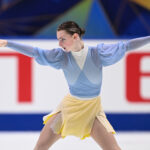
Boyang Jin: “I want to start it all over again”
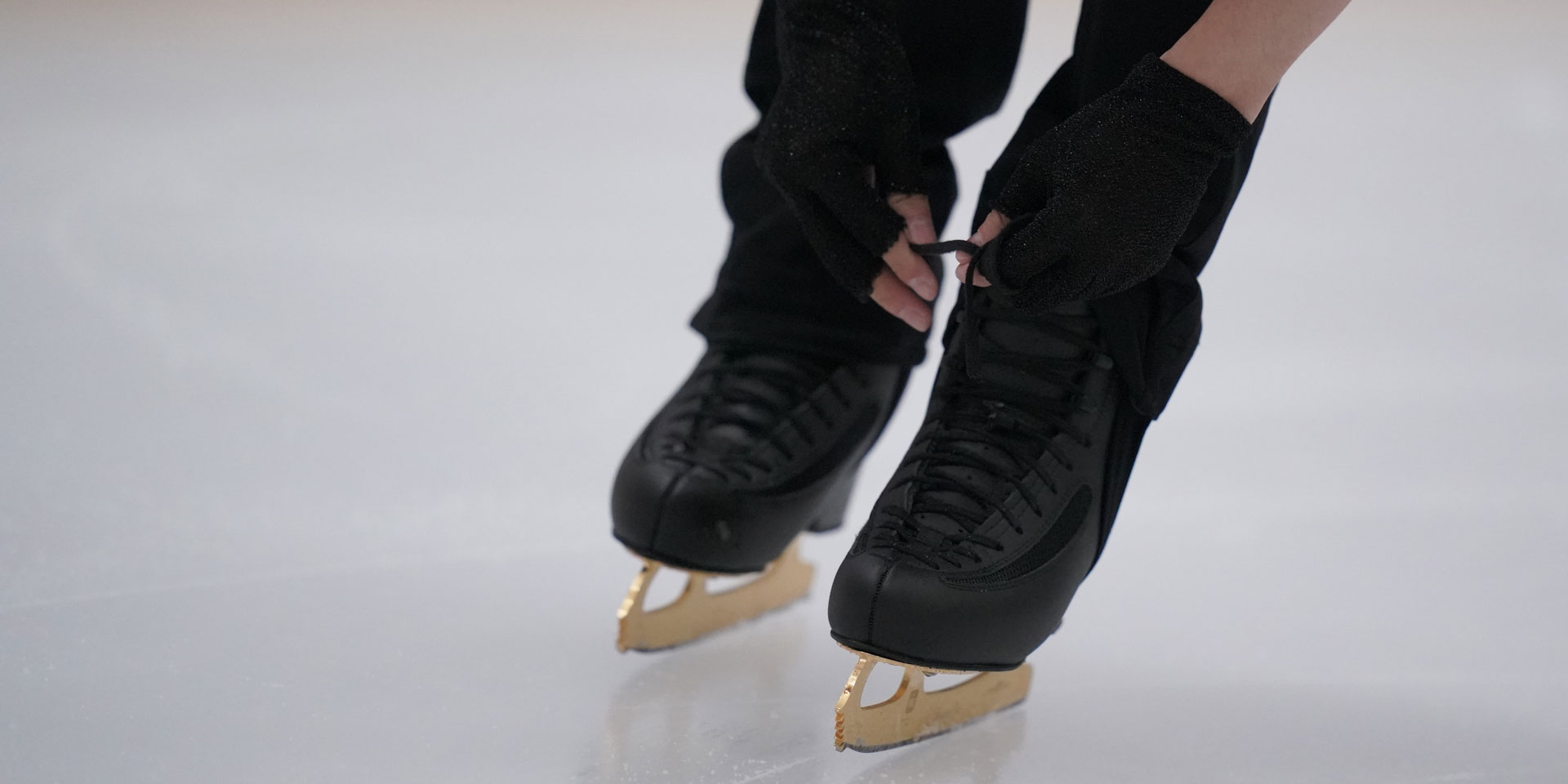
Internationaux de France. Four journalists, including me, were waiting for Boyang Jin after the free skate. Some paid heed to Boyang's improvements in program components this season, but I knew the Chinese skating community had been preoccupied with one single question, "What's the matter with Boyang?" When the time for my exclusive interview came, the young interviewee invited me to take a comfortable seat next to him. Having interviewed him a few times, I had been astonished as well as daunted by brevity of his speeches—they were not promising materials for decent writing. This was the first time that I had detected his longing for communication, yet his confession was also more upsetting than anticipated.
Honest as these thoughts were, Boyang appeared to contradict himself once in a while and explained his situation in a way different from public imagination. This is why I am determined to stay faithful to his original words as much as possible, modifying only the order of questions to create a smooth reading experience. The rest I would like to leave to the reader's judgment.
Q. How do you feel about your competition this time?
A. To be honest, my goal this time was just to stand here and compete, which was good enough for me.
Q. Why do you feel like this, is it because you didn't get the visa on the planned date of departure?
A. I was to set off at 2 a.m. that morning, but my passport wasn't returned to me a few hours before departure, I was worried and thought, what can I do now? (We rebooked the flight.) I was told next morning that my passport was ready, so I thought I could leave then. But when we arrived at the airport, I still had to wait in vain. My coach and I thought we could do nothing but give up the competition if we were unable to obtain the visa that morning, because we would miss it anyway if we departed later. We came back home. The visa office closed at 6 p.m., and I got a phone call after 5 p.m. telling me I could get it, and I thought I should fly here to compete no matter what the result was. I arrived in Grenoble at 2 a.m., one and a half day later than expected.
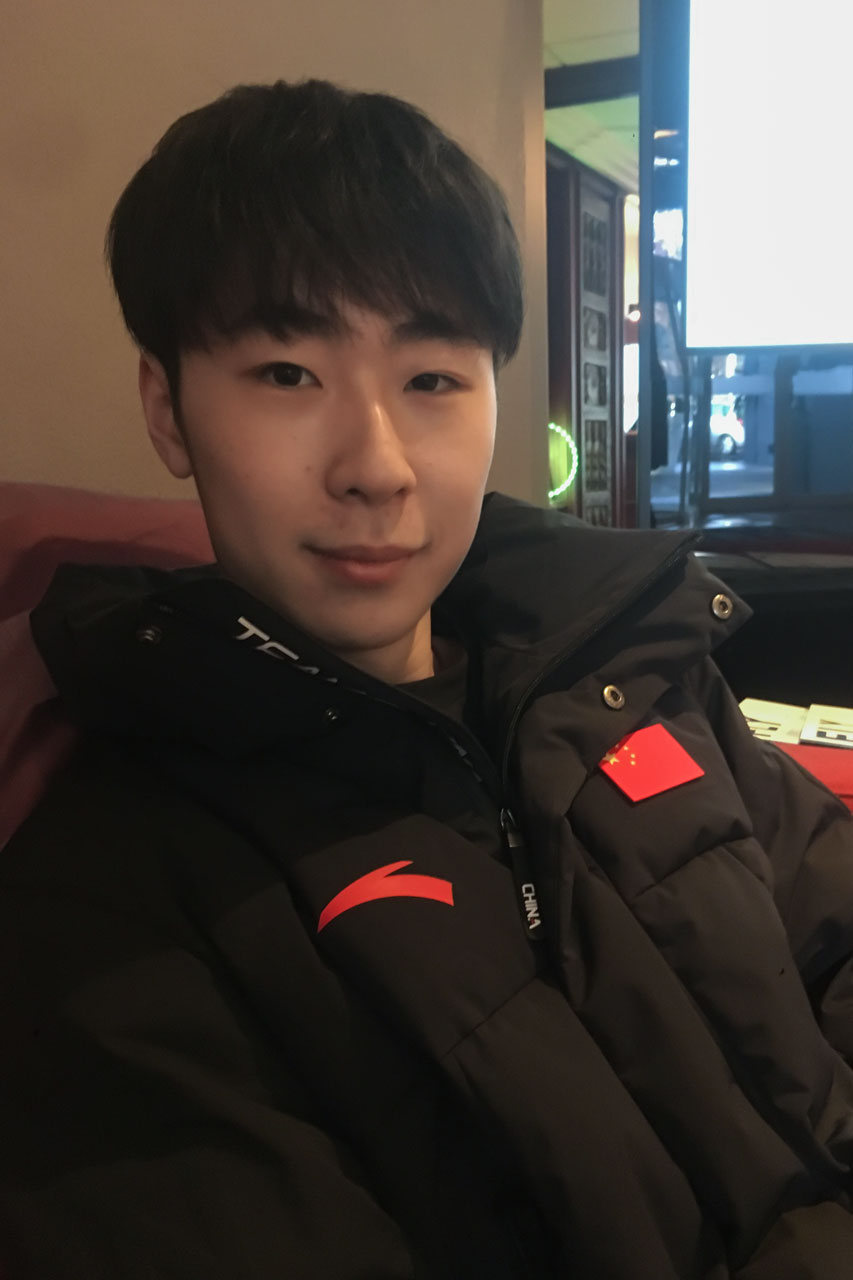
Q. Your coach said you were able to overcome the jet lag and adapt to the ice.
A. There is no excuse for a bad competition. Athletes get used to being jet-lagged.
Q. What happened to your flight ticket before the Grand Prix of Helsinki? There was also a problem…
A. I got the flight ticket, but the name on it was not mine. I barely made it to the competition.
Q. You have not been yourself in this first half of the season. Could you explain the trouble you meet?
A. The training is not going so bad, but I feel a lack of confidence when competing.
Q. I saw you doublecheck your quad Lutz a few times during the warmup. Do you have some problems with it? Could you explain why you often hit the sideboards (especially when you're jumping quads)?
A. Lutz is going well itself, but I just should get more familiar with the whole program. Yes, I sometimes hit the boards. I think it's because I jump too far and land too close to the boards. I should practice it, taking off earlier and leaving more space for my jumps.
Q. But today you jumped a sensational quad Lutz, getting a plus three in the grade of execution.
A. It has something to do with my confidence. I just love my career. I would not be Boyang if I were not skating.
Q. Since the Olympic season you have been training in Beijing. Is there any difference from training in Harbin? The training was said to be very strict last year…
A. Heading to the Olympics, sometimes you would even sacrifice your lunch and dinner time for training. I often ate very little or nothing at all. We trained in the morning and evening, having rest in the afternoon. I didn't even have time to be distracted by my cellphone. Now I am not training with Team China, but at a rink of Team Beijing. I also travel between Beijing and Harbin, returning to Harbin to train for a while if I feel stagnant. It is an effective approach.
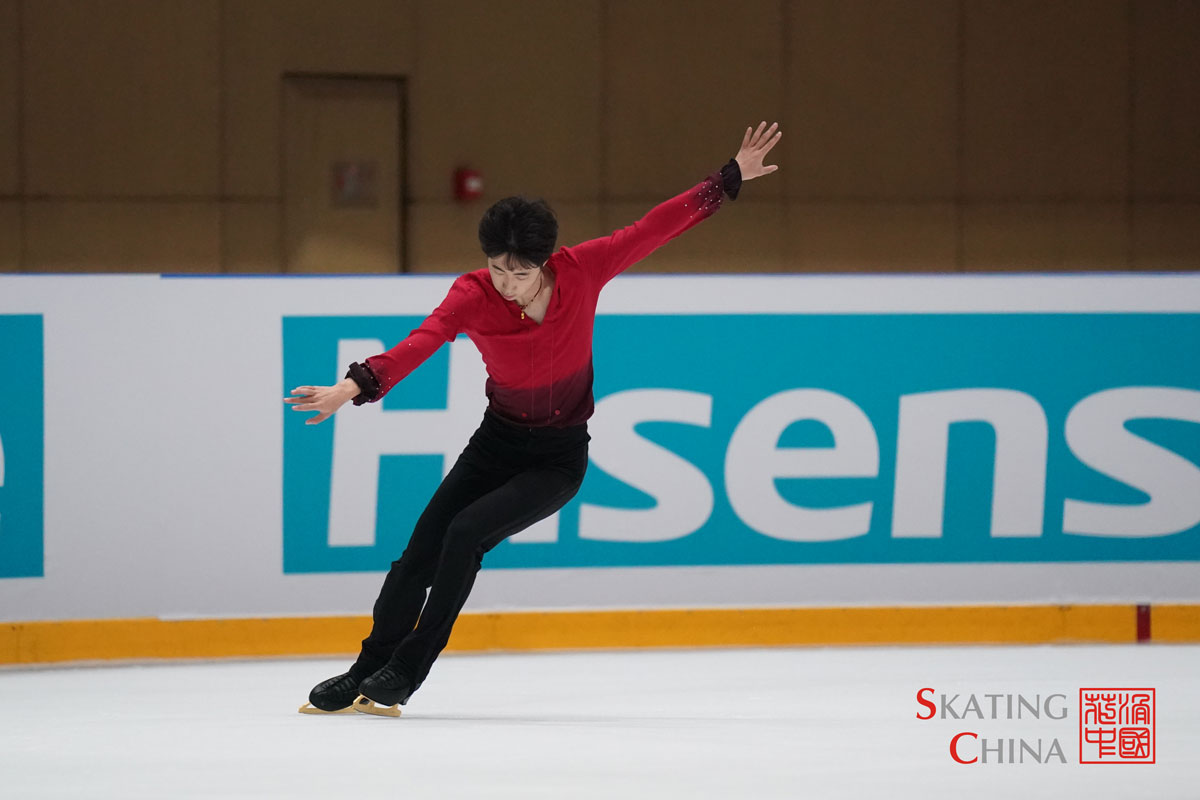
Q. Before the Olympics, the nutritionist of Team China would require you to eat every meal?
A. Our food was good, but the timetable was tight… Team China had a lot of athletes, every one of whom needed to use the rink. Thus, I needed to make use of the lunchtime.
. How many hours do you train on ice and off ice at the present?
A. One hour in the morning, another one in the afternoon for on-ice training. A few days per week off ice to train stamina. Off ice, it's not a problem of time, but you just have to do enough training.
Q. You once skated to Crouching Tigers, Hidden Dragons and now you're skating to Flamenco music. How do you interpret different styles of music?
A. I was a great dancer in my childhood, learning street dance, jazz, ballet… But I was too young and short then, and when I started to focus on my jumps, I neglected dancing. Now it's coming back. I feel I am approaching the ideal image of skate I visualize.
Q. Do you still practice dancing these days?
A. I am practicing. I have a dance teacher, and I learn from live shows and movies.
Q. Is the teacher hired by yourself or by Team China?
A. By myself. There are a lot of athletes in Team China with different programs. We need to do personalize our programs.
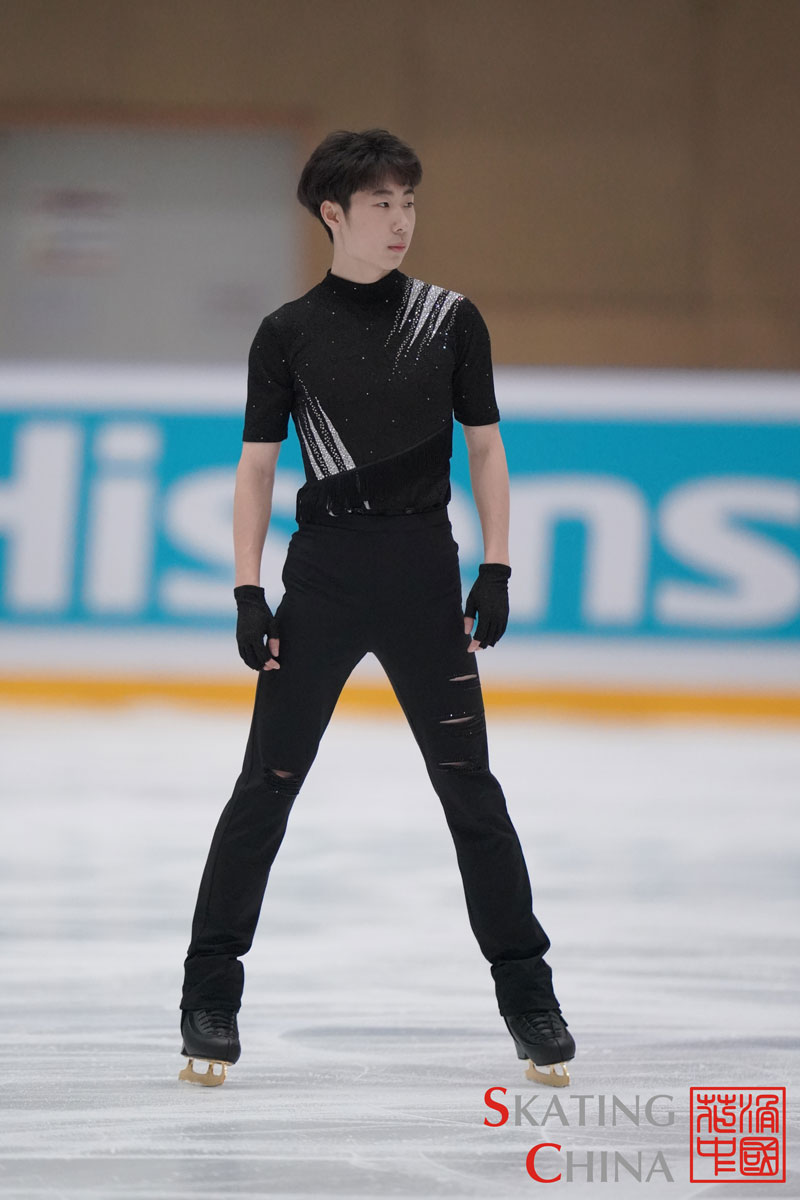
Q. Did you put a lot of efforts in your program components this year?
A. Yes. I used to leave the choreography all to Lori Nichol. After the Olympics, I felt more confident and would discuss it with Lori, telling her my imagination about some movements on ice. We combined our ideas and choreographed programs more fitting to me.
Q. You have been working with Lori for some years. Did she give you any special advice in the off season?
A. She told me to always be a happy Boyang. She said this was my favorite career, and that success did not matter as much as enjoying the career. "Trust yourself, nothing is impossible." She must be the best and most suitable choreographer for me.
Q. Are you focusing too much on the program components and neglecting your quads?
A. I think it's an issue of stamina. I can achieve all these so long as I have enough stamina.
Q. The rumor was going around in the off season that you were going to train with Brian Orser, and since it turned out its way, you have received lots of criticism. Does it affect you a lot? Are you still reading news about yourself on the Internet?
A. It does impact me. I used to read news about myself, but no more now. The pressure is overwhelming during practice and competitions. I feel I can't even breathe normally. Even during the practice, I become restless and just want to be armed to teeth. I want to skate well so badly. However, the more I think this way, the more pressure I feel. I just want to have a new start after this competition.
Q. There is something unspoken of about the issue. You have been asked a few times by the foreign journalists, though not by Chinese reporters...
A. I wish I would not be the one to talk, I want to focus on my competition. After returning from Canada, I don't feel like communicating with anyone. I lack energy to do a lot of things at home, and sometimes even find it annoying to talk with my mom. I keep everything to myself...
Q. Do you have a sports psychologist to turn to?
A. I don't know much about this… My mom said I'd become another person since my return from Canada.
Q. Where does that pressure come from? Do you feel it from your fans?
A. My fans are supportive and would not affect me in this way...
Q. You just said you didn't have problems with your individual moves, but each time you went through the whole program, you just felt unconfident?
A. Yes, I feel there will be more criticism if I can't skate well enough. The more I think this way, the more I feel anxious about my competitions.
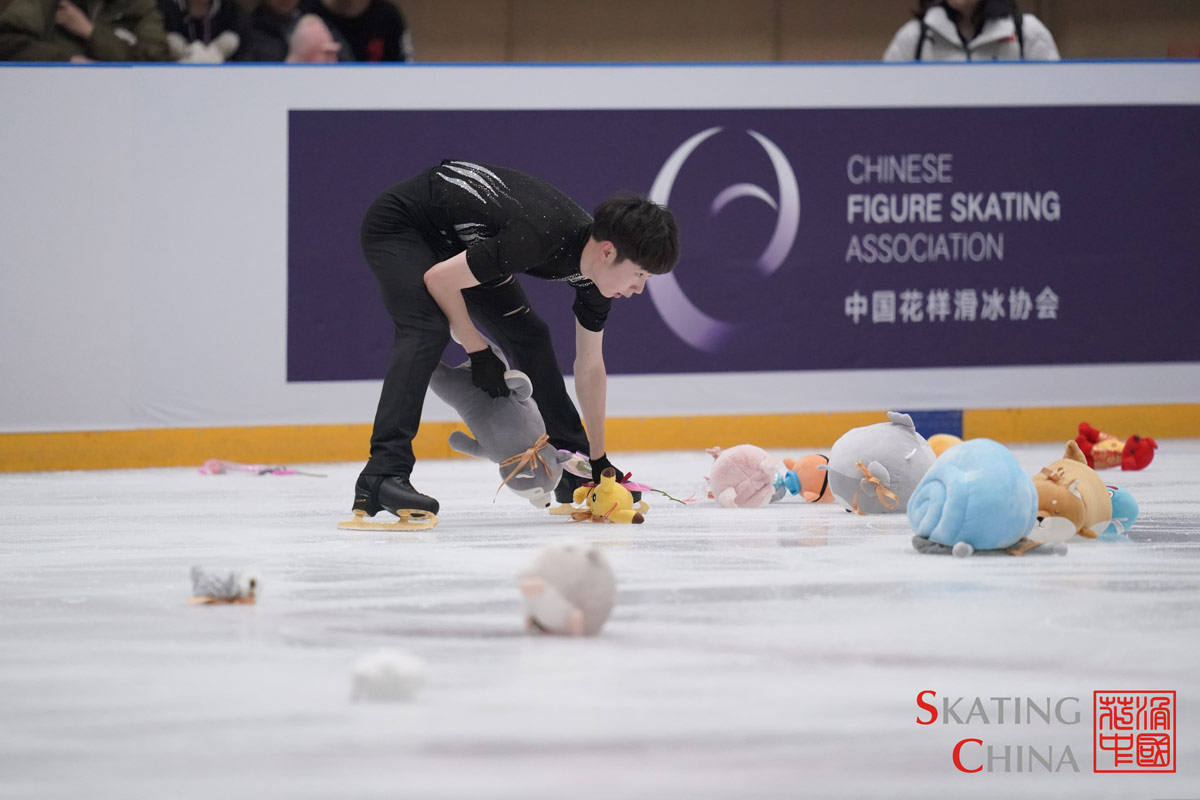
Q. Many athletes and coaching teams have attempted new approaches towards competition, like watering down their technical elements to improve consistency. Have you ever thought about it?
A. (shaking head) No, it is impossible for me. I just believe this is men's singles, and we should push the limits. I wouldn't be Boyang if I watered down the technical plan.
Q. Has your coach discussed it with you?
A. Well... The key point is that we lost the competitive spirit if we gave us quads for triples and doubles, especially when ladies are now jumping triple Axels and quads. We're men's skating. It's not an issue for discussion. Men's skating is just men's skating. If we all gave up difficult jumps, the competition would lose the excitement.
Q. To see it from a positive perspective, you have achieved some experience from this first half of the season after all?
A. Yes. I can see I changed (for the better) in some aspects since the choreography of my programs. I know how to make adjustments. It's time to leave behind (anxiety and fear) and start all over again.
Q. Will your next steps be the National Championships and the Four Continents Championships?
A. I will take part in both the competitions. I will compete as much as possible, because my ultimate goal is the Beijing Winter Olympics.
前往 中文版
(SkatingChina Journalist/Feng Xiao; Photographer/Ruiyang Liu)
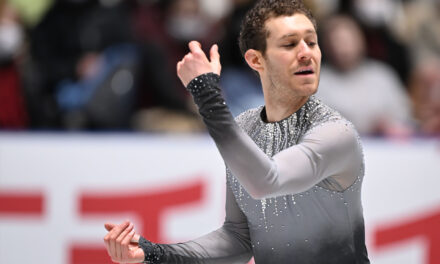
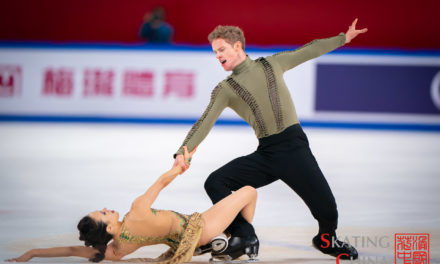
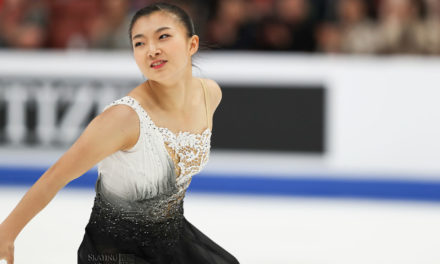
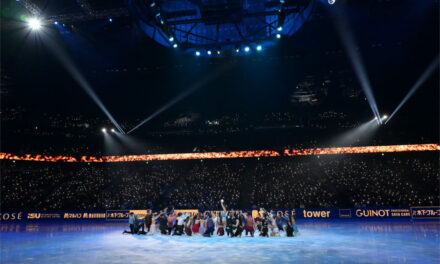
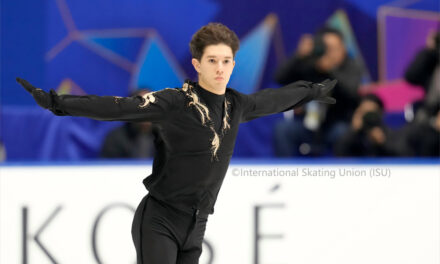
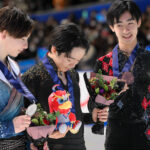
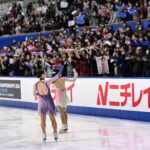
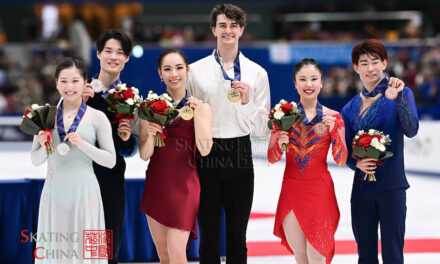
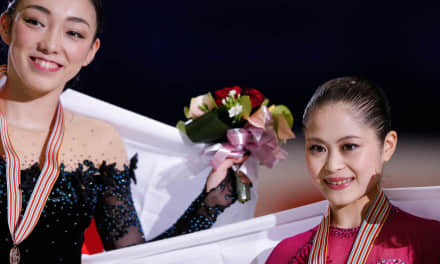
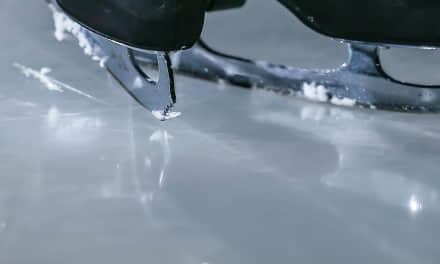
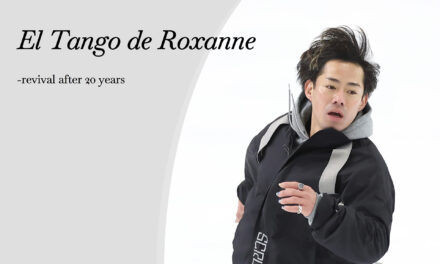
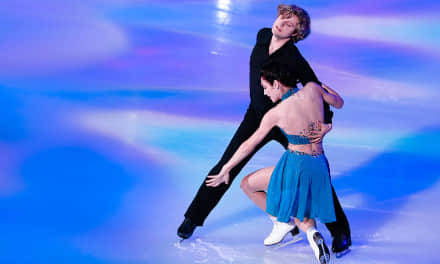
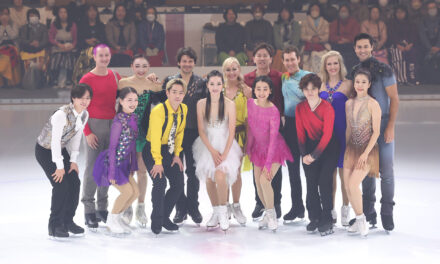
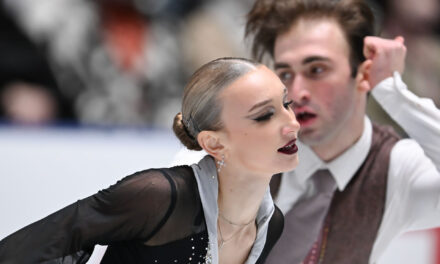

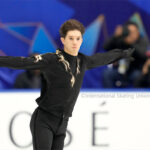
近期评论
——“花样滑冰是艺术与体育最好的结合”
——“花样滑冰是艺术与体育最好的结合”